
Leonora was the last of the original surrealists. She developed a fascinating imaginary world over the years, paintings full of bizarre animal human hybrids and dream like landscapes of fantastic places and things. She has been a great inspiration on my own art over the years, I'm glad she lived a long life and was able to share so much of her incredible art with the world.

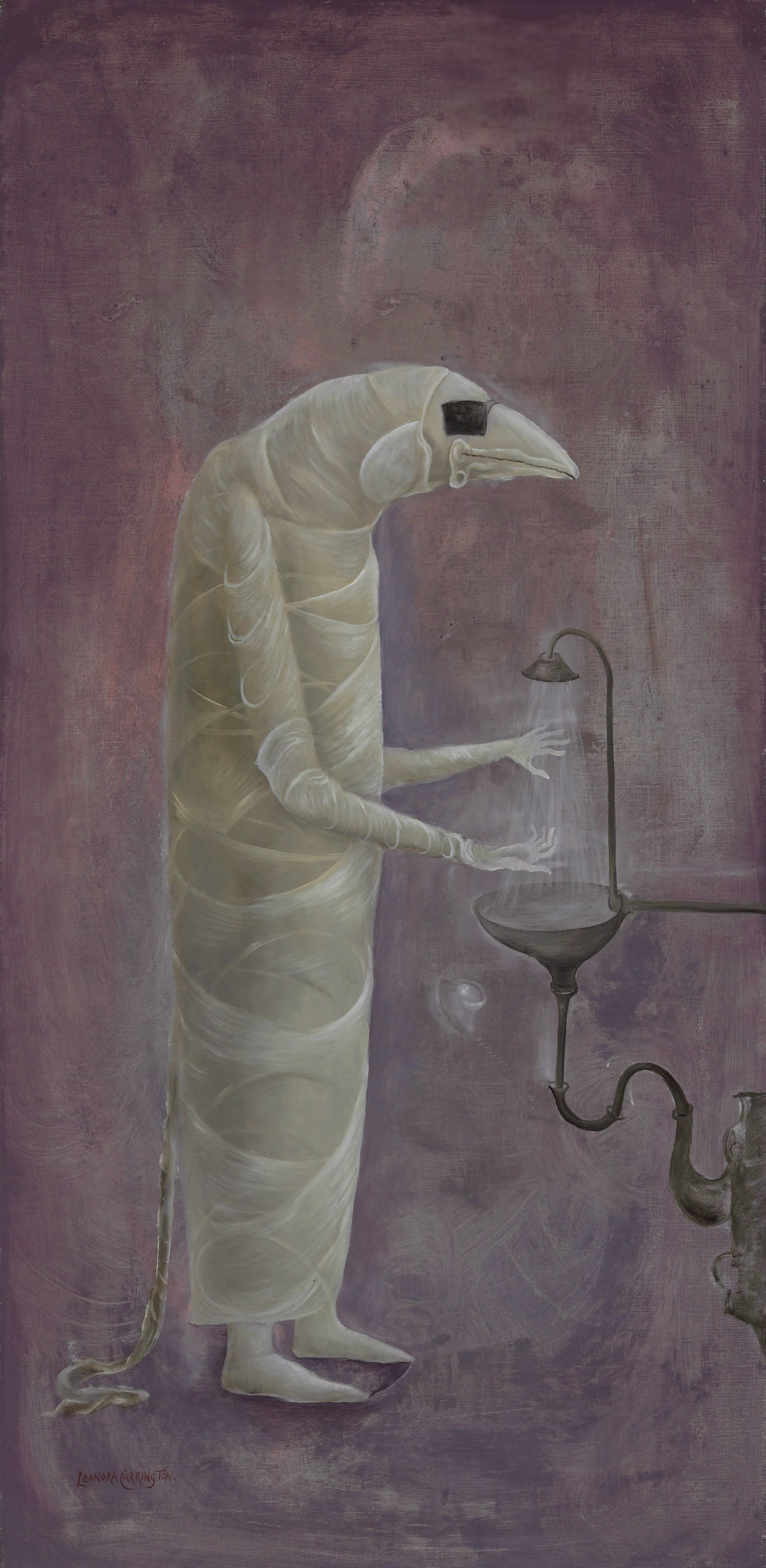
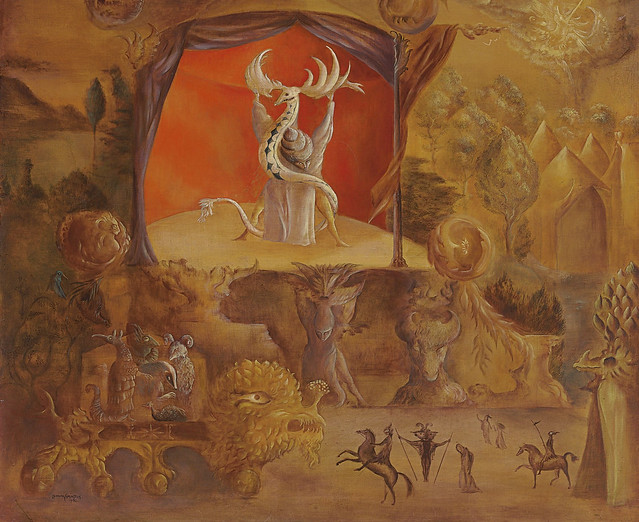
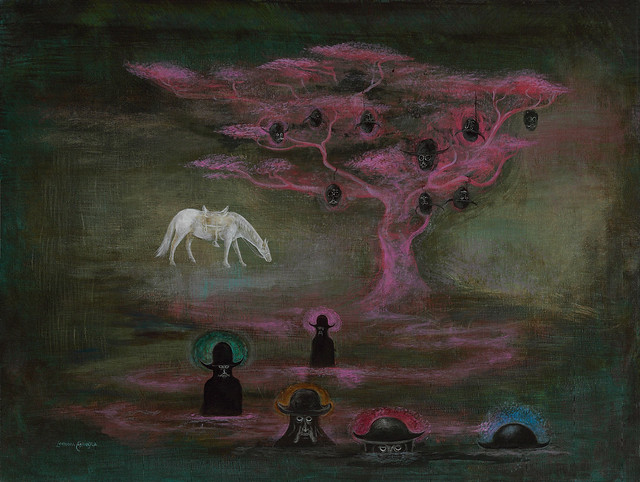








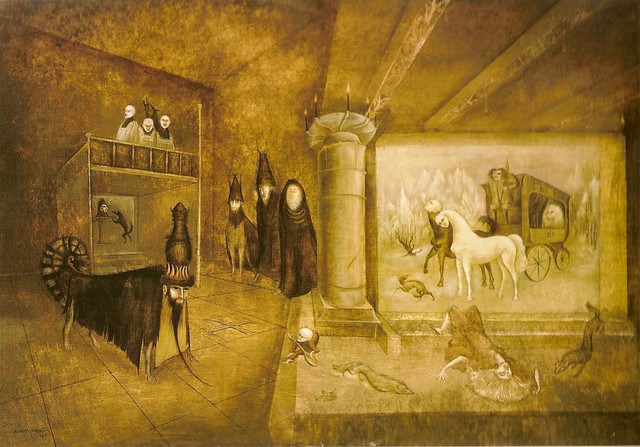

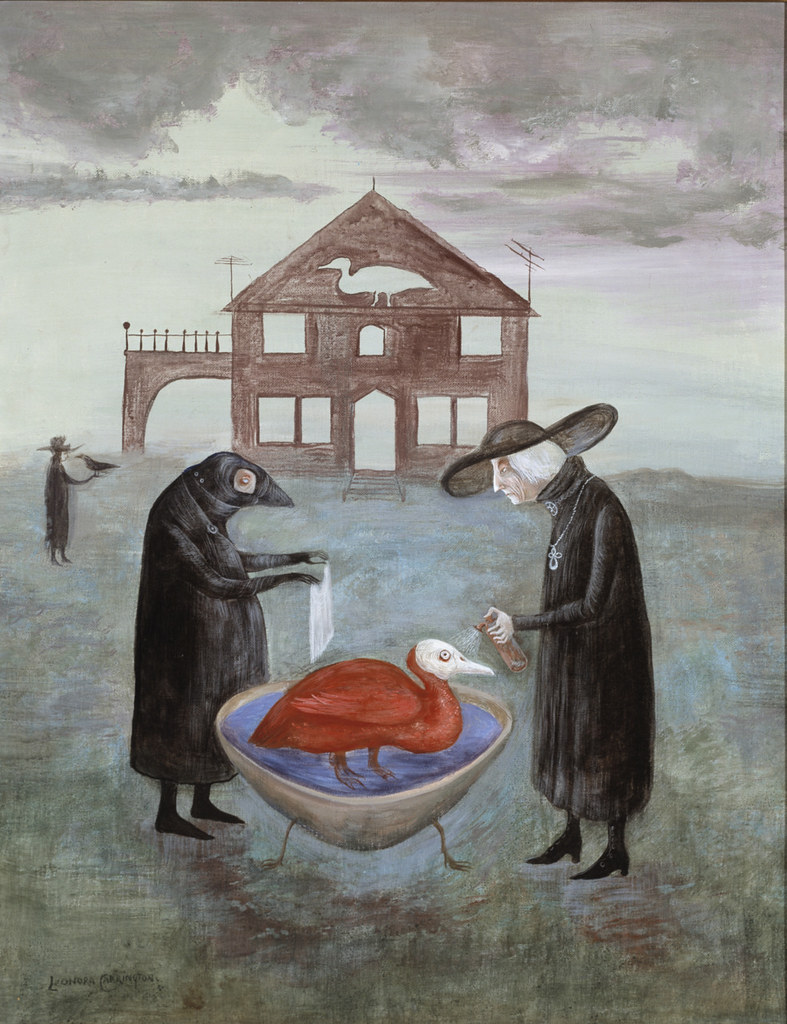
"Leonora Carrington, who gained a cultural foothold as the muse and lover of painter Max Ernst and later emerged as a significant artist in works that fused surrealism with the occult and mystical explorations of femininity, died May 25 in Mexico City. She was 94 and had pneumonia.
Surrealism — by turns macabre, sexually overripe, whimsical, subversive and fantastical — suited Ms. Carrington’s creative journey.
She was widely, if belatedly, regarded as one of the most imaginative artists of her generation and one of the last links to the surrealist movement that included Salvador Dali, Joan Miro and Marcel Duchamp. Her paintings fetched hundreds of thousands of dollars at leading auction houses.
Ms. Carrington was born in England to an upper-crust family that stifled her artistic impulses. She went through the motions of being a debutante before managing, at 19, to broker her independence and study painting.
Smitten with surrealism — and its use of art to explore the psyche — she became in 1937 the lover of one of its masters, the German-born Ernst, who was 46 and married.
They retreated to a farmhouse in southern France, where they put on plays and tended vineyards. Guests were welcome, to a point. When surrealist visitors overstayed their welcome, the interlopers were treated to an omelet — of their own hair, which Ernst and Ms. Carrington had secretly cut the night before.
Their idyll in the French countryside was interrupted by the German occupation during World War II. Ernst eventually found sanctuary in the United States — and, once there, married arts patron Peggy Guggenheim.
In Ernst’s absence, Ms. Carrington fled the Nazis and suffered a mental breakdown in Spain. When her parents sent an emissary to find her, she escaped to Mexico, a haven for European emigres during the war, through a marriage of convenience with a diplomat.
In the 1940s, her work was shown in important New York galleries. Her paintings were “heavy with sex and horror,” an art critic at Time magazine wrote, noting a body of images freighted with melancholy: “Feathery, hairy, horny, half-luminous creatures merged imperceptibly into birds, animals and plants. Painted with cobweb delicacy, they conspired and paraded before misty landscapes and night skies thick with floating islands.”
Her artistic reputation was initially handicapped by her relationship with Ernst, said Susan Fisher Sterling, director of the National Museum of Women in the Arts in Washington. She was seen more as a muse than an artist in her own right.
But Ms. Carrington remained a vital figure in the art world long after the surrealist movement dimmed in the late 1940s. She bridged the psychological aspects of surrealism with her growing interest in the roles of women as muses, mothers, goddesses and foes of patriarchal oppression.
Her paintings, murals and sculptures, which featured dreamlike images of animals, sibyls, animals and deities, reflected her study of alchemy, Mayan magical traditions, Buddhism and the Jewish mystical writings known as the Kabbalah." - quote from article by Adam Bernstein at The Washington Post
Leonora was previously mentioned in 2008, 2007 and 2006.
0 comments:
Post a Comment